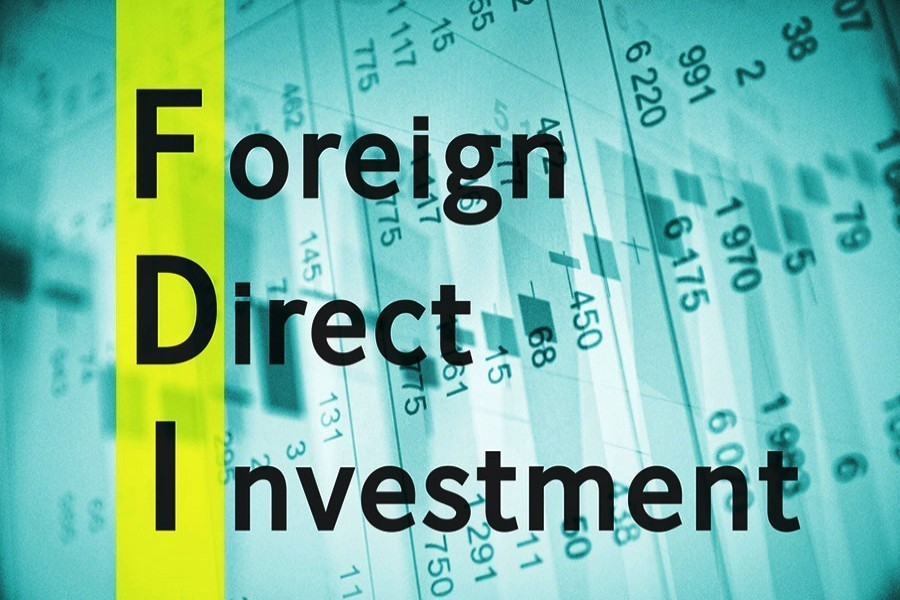Disparity between local and foreign investors, a lack of improved business environment and corruption, among others, are key barriers to attracting foreign direct investment (FDI).
Speakers, stretching from ambassadors to local business leaders, said this at a programme on Saturday, adding that there is a need for regulatory reforms to woo foreign investors.
On the other hand, Salman Fazlur Rahman, PM's private industry and investment adviser, dismissed those allegations, claiming that things have improved, to a large extent.
They were addressing the virtual event styled 'Implications of COVID-19 on FDI inflow to Bangladesh: Challenges and Way Forward' hosted by the Dhaka Chamber of Commerce and Industry (DCCI).
Mr Rahman joined the programme as the chief guest while BEZA (Bangladesh Economic Zones Authority) executive chairman Paban Chowdhury as the special guest.
Japanese ambassador ITO Naoki was a guest of honour at the event that was also attended , among others, by US embassy deputy chief of mission Joanne Wagner and JETRO country representative Yuji Ando.
Dr M Masrur Reaz, chairman at Policy Exchange, presented the keynote paper while DCCI president Shams Mahmud moderated the event.
Quoting the premier, Mr Rahman said disparity in terms of getting incentives will be eliminated soon.
It is now realised at all levels of the government that the change of mindset is necessary to carry out necessary reforms.
Bangladesh, the adviser to the PM felt, is encountering "petty corruption" at the field level while many major economies have corruption at the highest level.
He said the government is working on policy reforms and this initiative will attract more FDI, adding that political and bureaucratic leadership is in favour of reform to court investment.
Citing the experience of e-tender, Mr Rahman said online and automation will reduce corruption to a large extent.
The government is working hard to improve the 'ease of doing business index' and also amending laws, including bankruptcy act and companies act, to achieve the double-digit ranking.
"Definitely, we'll achieve double-digit ranking of the doing business index [from existing three digits of 165] by 2022," Mr Rahman went on saying.
BEZA executive chairman Mr Chowdhury said the latest BEZA governing meeting has decided to offer 20-per cent cash incentives on agro-processing industries.
"We're discussing with NBR about the bond license and hopefully its tenure may be extended for at least three years instead of one year."
Mr Chowdhury stressed the need for signing free-trade agreements with other countries to help get greater market access.
At the programme, envoy Mr Naoki said Japanese FDI to Asia in 2019 was $57 billion, but Bangladesh's share was just 0.09 per cent of that.
In the regional connectivity and under big B initiative, he said, Japan's collaboration will continue.
Mr Naoki said simplification of taxation, customs clearance and foreign exchange reforms are the critical issues to woo FDI.
Once existing companies will find the business environment friendly, they will invest more. It will also lead to new investments, he observed.
The Araihazar Economic Zone in Bangladesh, being established by Japan will be the best in Asia, Mr Naoki commented.
Ms Wagner said US has invested in gas, power and energy sector here. Digital economy opens up a new opportunity that needs to be explored during this pandemic-hit period.
She said agriculture and biotechnology sectors have good prospects where Washington and Dhaka can work together.
Mr Wagner highlighted the need for women empowerment and women entrepreneurship.
In reply, DCCI president said two leading business bodies-Metropolitan Chamber of Commerce and Industry, Dhaka, and Bangladesh Garment Manufacturers and Exporters Association-are being led by women.
At the function, JETRO country rep said 310 Japanese companies are now in Bangladesh and their number has been increasing.
Tax issues, registration process, investment climate, lack of adequate logistics and regulatory reforms are some of the key challenges Bangladesh is facing the matters of attracting FDI.
"Once the business climate is improved," Mr Ando said, "the cost of doing business will come down."
He said motorcycle manufacturing is a potential sector and Bangladesh now manufactures around 500,000 units per year.
AmCham president Syed Ershad Ahmed said there is a need for hassle-free support from the NBR and modernisation of some old acts like customs act and bankruptcy act.
Abul Kasem Khan, chairperson at the BUILD, said in the post-Covid era, Bangladesh needs to craft a strategy to grab FDI in the healthcare sector.
"Foreign investors will come to Bangladesh to get duty free access to the Chinese market."
Mr Khan suggested the government declares logistics a thrust sector.
Chittagong Stock Exch-ange chairman Asif Ibrahim said, "We need to encourage investment in the energy and infrastructure sector."
Keynoter speaker Dr Reaz said Bangladesh needs to improve in few competitiveness areas like innovation, infrastructure, goods market efficiency, technological readiness and business sophistication.
"We've a $350-billion investment gap in infrastructure. Private investment to GDP ratio should be 26.6 per cent," he commented.


